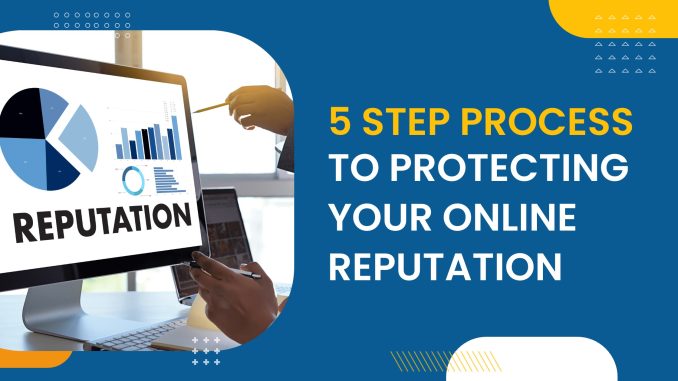
In today’s digital-first world, your online reputation is one of your most valuable business assets. Whether you’re a solo entrepreneur, a growing startup, or a well-established brand, how you’re perceived online can directly influence customer trust, investor confidence, and long-term success. A single negative review, viral complaint, or misleading article can ripple across platforms and search engines, affecting everything from sales to partnerships. Insuring your online reputation isn’t about purchasing a traditional policy—it’s about building a comprehensive strategy that blends risk management, legal protection, and proactive communication to safeguard your digital identity.
The first step in protecting your online reputation is understanding what’s at stake. Unlike physical assets, reputation is intangible but deeply impactful. It’s shaped by customer reviews, media coverage, social media mentions, and search engine results. A restaurant might lose foot traffic after a poor Yelp review, while a tech company could see investor hesitation following a critical blog post. These reputational hits can be sudden and often disproportionate to the actual issue. That’s why businesses are increasingly turning to reputation management services and insurance products designed to mitigate the fallout from online crises.
Reputation insurance, while still an emerging field, is gaining traction among companies that recognize the financial implications of digital damage. These policies typically cover costs associated with crisis response, including public relations efforts, legal consultations, and even temporary revenue loss. For example, if a false claim about your business goes viral and leads to a drop in sales, reputation insurance can help fund a campaign to correct the narrative and restore public confidence. It’s not about erasing criticism—it’s about ensuring you have the resources to respond effectively and maintain control of your brand story.
Legal protection plays a key role in insuring your reputation. Defamation, libel, and slander are serious concerns, especially when misinformation spreads quickly online. If someone publishes false and damaging content about your business, you may have grounds for legal action. Media liability insurance can help cover the costs of pursuing such claims or defending against them if you’re accused of reputational harm. This is particularly relevant for businesses that produce content, such as blogs, podcasts, or videos, where the risk of unintentionally offending or misrepresenting someone is higher. Having legal coverage ensures that you can navigate these disputes without draining your resources or compromising your operations.
Cyber liability insurance also intersects with reputation management. A data breach or hacking incident doesn’t just expose sensitive information—it can erode customer trust and attract negative media attention. Cyber policies typically include support for breach response, including forensic investigations, customer notification, and PR services. For instance, if an e-commerce platform suffers a security breach and customer data is compromised, the reputational damage can be swift and severe. Cyber insurance helps manage the technical recovery and the public-facing narrative, allowing the business to demonstrate accountability and resilience.
Proactive monitoring is another essential component of reputation insurance. Many businesses invest in tools that track online mentions, reviews, and sentiment across platforms. These services alert you to potential issues before they escalate, giving you a chance to respond quickly and thoughtfully. For example, if a customer posts a negative review on a niche forum, early detection allows you to address the concern directly and potentially turn the situation around. This kind of responsiveness not only mitigates damage but also reinforces your commitment to transparency and customer care.
Employee behavior can also influence your online reputation, especially in industries where personal branding and public interaction are part of the business model. A single inappropriate post or comment from a team member can reflect poorly on the entire organization. Employment practices liability insurance may offer coverage for reputational harm stemming from internal issues, such as discrimination claims or wrongful termination disputes. While these policies are primarily designed to address legal risks, they can also support reputation management by funding legal defense and communication strategies during sensitive situations.
For high-profile individuals and executives, personal reputation insurance is becoming more common. These policies help cover the costs of managing public perception following controversies, accusations, or media scrutiny. Whether it’s a CEO facing backlash over a public statement or a founder caught in a legal dispute, personal reputation coverage ensures that the individual—and by extension, the company—can respond strategically. This is especially important in sectors like finance, entertainment, and politics, where personal and professional reputations are closely intertwined.
Ultimately, insuring your online reputation is about more than reacting to crises—it’s about building resilience and maintaining trust. It requires a blend of legal foresight, digital vigilance, and strategic communication. Working with advisors who understand the nuances of digital risk can help you craft a protection plan that aligns with your brand values and business goals. They can guide you through policy selection, monitoring tools, and response protocols, ensuring that you’re prepared for whatever challenges may arise.
Documentation and transparency are key to supporting your reputation insurance strategy. Keeping records of customer interactions, media coverage, and internal communications can help substantiate your position in the event of a dispute. It also demonstrates to insurers and stakeholders that you take reputation seriously and are committed to ethical practices. Regularly reviewing your coverage and updating your risk management protocols ensures that your strategy evolves with your business and the digital landscape.
In a world where perception can shift with a single tweet or headline, insuring your online reputation is not a luxury—it’s a necessity. It’s about ensuring that your brand can withstand scrutiny, respond with integrity, and continue to thrive in the face of adversity. By investing in comprehensive protection and staying proactive, businesses and individuals alike can navigate the complexities of digital reputation with confidence and clarity.